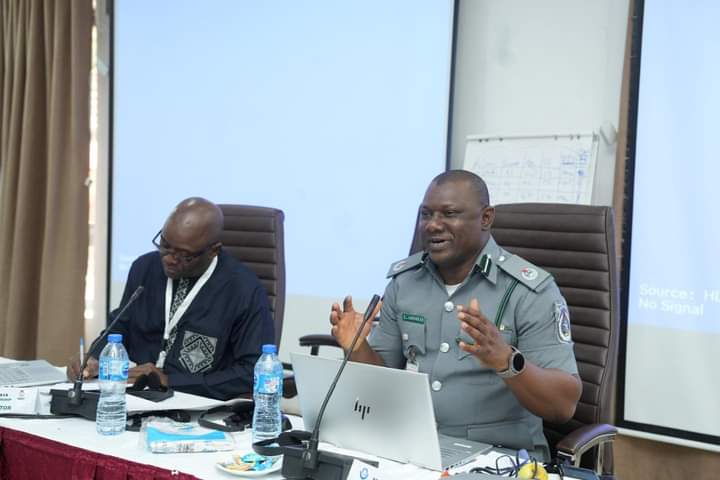
Following a week-long capacity-building workshop, 42 Customs officers from various West and Central African countries, including 15 from the Nigeria Customs Service (NCS), have been equipped with advanced training on Artificial Intelligence (AI) applications in Customs operations.
The workshop, hosted by the Nigeria Customs Service at Bolton White Hotels in Abuja, aimed to equip officers from Cameroon, Côte d’Ivoire, Ghana, and Mali with the skills to enhance operational efficiency through AI-driven solutions.
The programme commenced on Monday, 20 October 2024, and concluded successfully, with participants gaining critical insights into using AI in border management and trade facilitation.
Speaking on Wednesday, 23 October 2024, shortly after the first session, Deputy Comptroller Kenneth Olowo, who also serves as the Director of the Regional Training Centre in Abuja, stated that the workshop aimed to revolutionise Customs operations worldwide by offering transformative solutions to streamline processes and enhance border security.
“By leveraging AI technologies, Customs authorities can modernise their practices, improve decision-making, and adapt to the evolving demands of international trade. Customs authorities are increasingly interested in adopting AI in their operations,” DC Olowo said.
According to him, “Given the increasing significance of AI in various industries and its potential to revolutionise processes, it is crucial for Customs administrations in the West and Central African (WCA) region to equip their staff with the necessary skills and knowledge to harness the power of AI effectively.”
The workshop provided participants with training on establishing a robust data infrastructure and integrating diverse data sources such as trade databases, shipping manifests, and intelligence networks.
DC Olowo emphasised using Machine Learning (ML) and Predictive Analytics for risk assessment and anomaly detection.
He explained, “Leveraging machine learning algorithms enables Customs administrations to optimise risk management and effectively detect irregularities.”
He added, “Participants also received training on the applications of Geo AI for cargo tracking and mapping technologies in Customs operations.”
Other key areas included fostering an organisational culture that embraces AI-driven innovation and familiarising participants with fundamental AI concepts, algorithms, and tools to address real-world challenges.
Speaking further, DC Olowo commended the Comptroller-General of the Customs Service, Adewale Adeniyi, for capacity-building programmes.
He expressed confidence that the AI workshop would significantly enhance the efficiency of Customs operations in the WCA region, noting that the skills acquired would empower participants to modernise and secure their borders more effectively.















